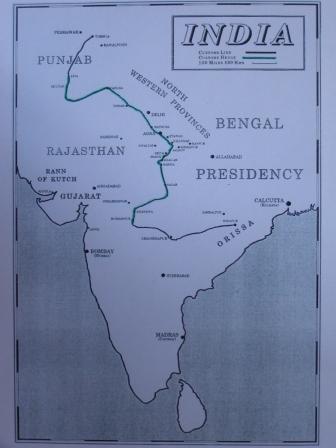 Ek Phirangi Raja
Ek Phirangi Raja
In this essay, Romesh Bedi recounts the true story of Frederick E Wilson, a British army officer, who deserted the army after the Sepoy Mutiny of 1957, escaped to the Himalayas, and settled in Harsil, a remote village in Uttarakhand on the banks of the Bhagirathi.
Wilson makes a flourishing business from the export of skins, fur, musk from the region, and rips the local deodar forest, to cash in the growing demand for wooden sleepers during the expansion of the Indian railways by the British, which were sent down to the plains through the rivers. Wilson soon acquires a lease from the Raja of Tehri-Garhwal, for his timber business and keeps the Raja happy by giving him a share of the profits, and even begins to mint his own local currency, because of which locals start calling him Raja.
Wilson's huge mansion in Hursil now belongs to the Forest Department, and his Charleville Hotel in Mussoorie now is the site of the Lal Bahadur Shastri National Academy of Administration (LBSNAA). The main purpose of the Academy today is to train officers of the Indian Civil Services.
Considering the sorry state of affairs of the country and the rampant corruption, the author concludes that though the tiger (British and Wilson) has left, the tiger's character in the form of the Indian Administration which took its place, continues to remain, and most of all, its striking that these administrators graduate out of the Academy that Wilson built.
Chutki Bhar Namak Paseri Bhar Anyay
The story of the high salt tax imposed by the British, which deprived several Indians of a commodity as basic as salt and impacted their health for generations, and the march led by Gandhiji to Dandi to make salt and defy the law, is well known.
What is not so well known is the story of the Great Indian Hedge, a 3200 km customs barrier made of trees, hedges and bushes, manned by 12,000 personnel, to facilitate the collection of this heavy salt tax. In this essay, Irpinder Bhatia, tells the story of British author Roy Moxham's efforts and experiences, in unearthing the existence of this cruel instrument of oppression, and putting the bits of information together as a book, The Great Hedge of India (2001).